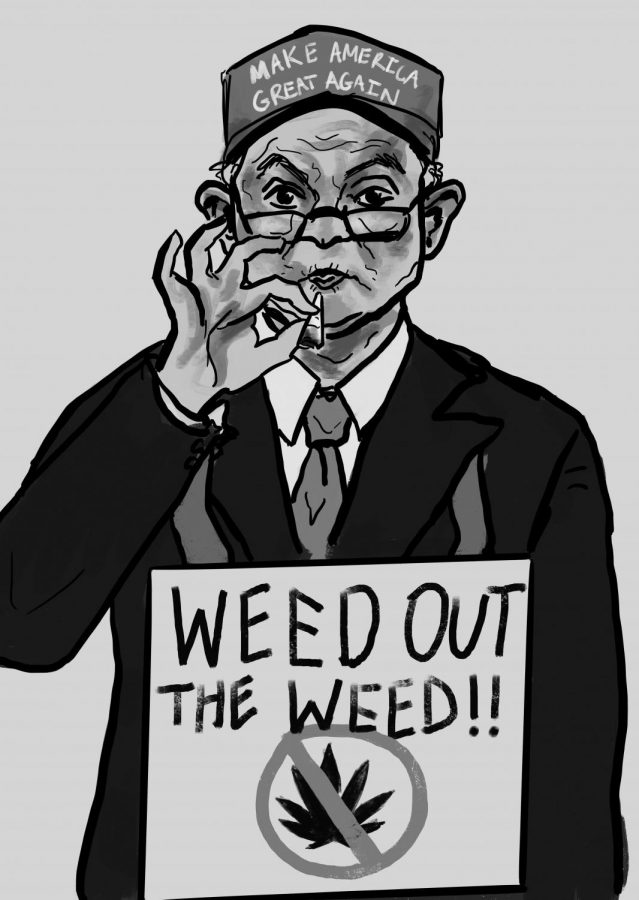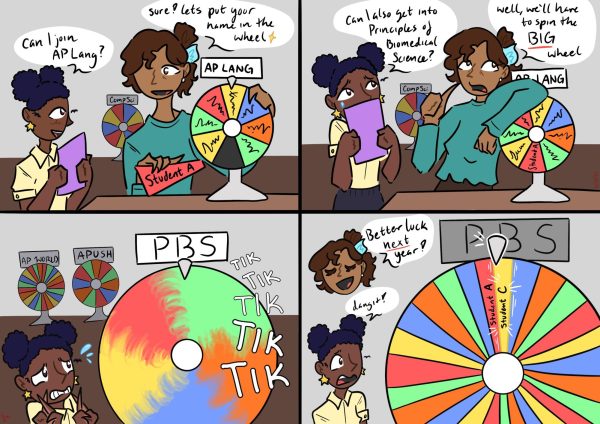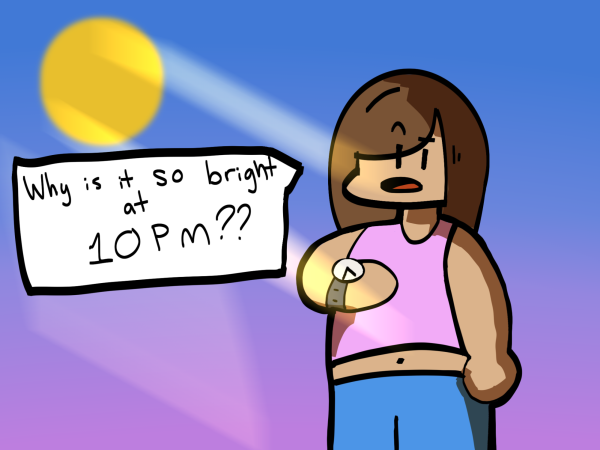Sessions maintains blunt view on marijuana
Washington and Colorado became the first states to legalize marijuana for recreational use in 2012. Since then, 28 states have introduced laws broadly legalizing or decriminalizing marijuana in some form.
Twelve of the 28 states have decriminalized the drug, allowing people to possess small amounts of the marijuana without prosecution. Nine states, including California, have fully legalized marijuana for recreational use.
Many people across the country, including myself, applaud these states. Legalization has helped advance the use for medical marijuana, allowing Colorado to bring in more than $1 billion in revenue in the past year alone according to The Washington Times.
Just imagine how much revenue California will generate now that the drug has become legal for recreational use on Jan. 1.
But one man who doesn’t agree with the recreational or medical use of marijuana can halt the progress these states have made.
Attorney General Jeff Sessions has made his stance on marijuana very clear since he took office as an Alabama senator back in 1981. He’s quoted as saying, “Good people don’t smoke marijuana,” and has gone as far to state, “Marijuana is only slightly less awful than heroin.”
This is very damaging, as his statements are not supported by any scientific evidence and his new attack on marijuana could jeopardize its future.
Sessions made the announcement on Jan. 4 that he would be repealing the Cole memo, which is a hands-off approach on states and their decision to legalize marijuana.
The memo was put in place by the Obama administration in 2013. It essentially sets up a non-interference policy with the states that have legalized marijuana as long as they followed a set of guidelines that included not selling to children, gangs, or across state lines where the drug is illegal.
With the memo being repealed, it now leaves the future of legalization in a huge gray area. Although no one is really surprised that Sessions repealed this memo, this move came as a shock to many people because President Trump campaigned as a supporter of states’ rights.
Recent events have led to the question: Should the federal government have the authority to interfere with state laws that clash with federal laws?
Federal laws that contradict state laws is nothing new. But for the two previous presidents, Obama and George W. Bush, it was not an issue as they both sided with the states on the issue.
Numerous studies have shown the positive effects of the drug for medicinal use. It also brings in a massive amount of revenue for states in which it has been legalized, which can positively impact public education and other tax-funded programs.
The U.S. has made great steps toward legalizing marijuana in the past decade, benefiting many patients who depend on this drug for its medical purposes.
As well as the estimated $6.7 billion it generated nationwide in 2016 according to Forbes, it is no question that the states should hold the decision on the future of marijuana in their state, and it should not be up to a few men in Washington.

Aidan Trejo is a senior at Cal High and this is his third year for writing for the Californian. He has written in various sections such as A&E, News...


